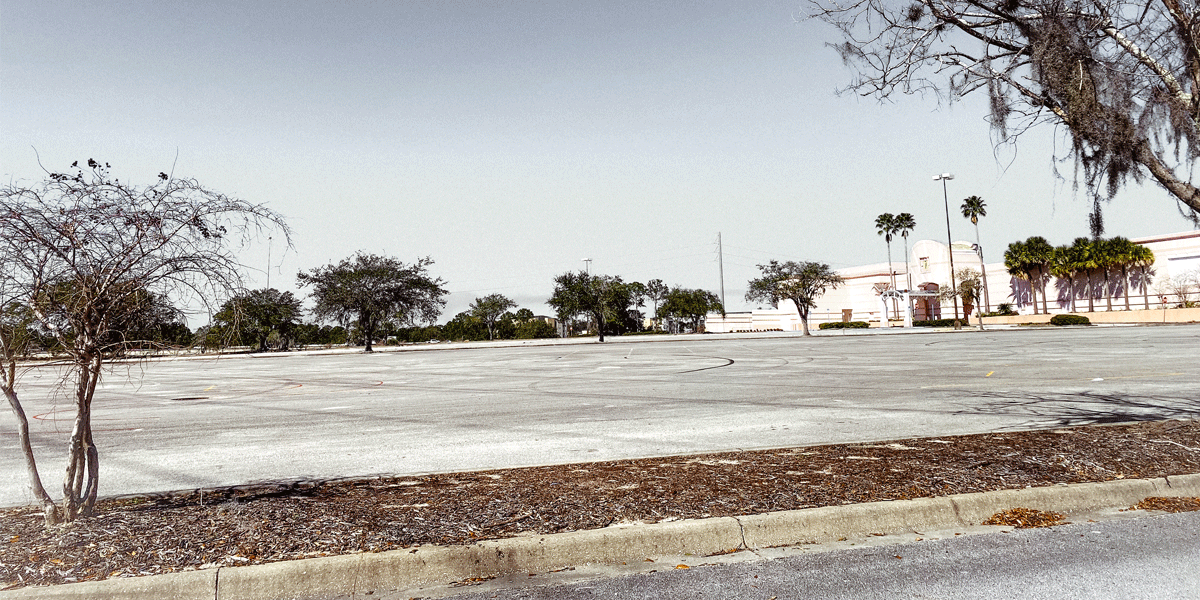Truck Abandonment Consequences: What Responsible Drivers Need to Know
Blake has spent over ten years in the trucking industry. As an operations manager in the vans division, he works almost exclusively with independent contractors. Prior to joining the ATS team, his time was split between less than truckload freight, over-the-road trucking and dock operations.
Have you ever considered walking away from trucking — literally?
I think everyone has had a fleeting moment or two where we’ve considered quitting our jobs on the spot, walking out of the office without looking back.
For truckers, the cab is your "office." If there have been times you've been tempted to leave the keys in the ignition and ride share home, well, I doubt you're alone. Maybe you’re frustrated with your fleet dispatcher, your customers, or the job in general.
As an Operations Manager at Anderson Trucking Service (ATS), I've experienced truck abandonments and the frustrating aftermath. I’m here to tell you that abandoning your truck on the side of the road or at a random truck stop will have a significant impact on your finances and your aspirations as a truck driver.
Keep reading and I’ll tell you exactly why abandoning your truck can mean kissing trucking goodbye.
What is a Truck Abandonment?
A truck abandonment occurs when a driver leaves their truck in an unauthorized location. Abandoning a truck leaves the truck open to vandalism or theft.
An unauthorized location is any location that is not the designated spot your trucking carrier told you to return your truck to. This includes the keys and any equipment that belongs to the company.
A driver may leave the keys in the ignition or lock the truck and give it to a truck stop attendant; either way, it is a truck abandonment. Some drivers will even leave the truck with the windows down or the engine running.
Simply leaving the truck unlocked subjects it to vandalism on the outside or inside. Vandals may draw graffiti on the outside of the truck or leave trash on the inside.
In some cases, people will drive off with the truck because the keys are in the ignition.
A driver may also quit under dispatch, which means they have either accepted an assignment or they have a load. When they quit under dispatch, they abandon both the truck and the load, leaving the customer high and dry.
Another cardinal sin in trucking is holding freight hostage. It doesn’t happen often, but a driver may hold the freight and fail to deliver it until their trucking company gives them something they want.
What Happens to a Driver If You Abandon Your Truck?
Any of these behaviors — truck abandonment, quitting under dispatch or holding freight hostage — will ensure you never get hired at a reputable trucking company again.
Here's what happens if you abandon a truck:
- You'll be responsible for paying the truck recovery and cleanup costs. If you have a maintenance account, those funds will likely be used to cover the cost of recovery and repairs.
- Your final settlement check may be withheld.
- Any new carriers you apply to will see truck abandonment on your work verification report, which will likely make you ineligible for hire.
- If you make it to orientation with a new carrier and your truck abandonment record is discovered, you will be sent home immediately.
Hiring guidelines at most companies forbid recruiters from hiring a driver who has abandoned a truck. If you’ve abandoned a truck once, there’s a good chance you’ll do it again. Hiring a driver with truck abandonments on their record is a risk trucking carriers simply aren’t willing to take.
There are almost no valid reasons that would excuse truck abandonment. If you have a medical emergency and are physically unable to drive the truck or you suffer a medical emergency in which you have to be taken from your truck to the hospital, that is excusable. Most trucking companies will work through problems with you to ensure the truck gets returned properly.
But if you're frustrated, think you'll be quitting soon to go to a new carrier, or simply don’t feel like dropping your truck off where it needs to go, you can consider your trucking life over for at least the next 7-10 years, depending on the guidelines of the companies you're applying to.
Who Else is Affected By Truck Abandonment?
When you abandon your truck, you're not just creating problems for yourself — you're negatively affecting other drivers and your former employer.
Trucking companies typically don't even learn about truck abandonments until a truck stop attendant or law enforcement official calls to notify them that the truck appears to be abandoned.
Recovering the abandoned truck (an asset already worth $150,000 or more on its own) can cost the trucking company an average of $2,500 to $5,000. Depending on where the truck is and whether it is loaded, it can cost significantly more.
In some cases, the trucking company will be notified that the truck is about to be towed. If this happens, thousands of dollars in fees can add up from the tow lot — fees that the carrier is responsible for paying for in order to get their asset back.
The operations department will have to:
- Locate the truck via the internal GPS
- Connect with local authorities or a truck stop attendant to confirm the truck’s location
- Dispatch another driver to pick up the truck
If time-sensitive freight was left on the truck, or if the abandonment left a load without a truck to pick it up, a driver may be pulled off a load and sent to deliver or pickup the freight ASAP to maintain customer relationships. This often involves flying a driver to the truck location or having them rent a car — expenses the carrier won't be thrilled to foot the bill for.
The entire process is a waste of time and money, not just for the carrier or driver (who may have been pulled off a better load to recover the truck), but for everyone else involved, too.
From the local authorities who were tasked with investigating the ditched truck to the truck stop attendants responsible for fielding carrier calls and coordinating their arrival onsite, no one will be happy with a driver that has abandoned their truck.
So, if you're a responsible driver who cares about their reputation and the effect they have on others — and if you're reading this article, we bet you are — your best course of action is always to return your truck to an approved location.
Keep Your Professional Life On Track — Don’t Job Hop
The consequences of abandoning a truck are severe — professionally and financially. If you're concerned about getting a truck back to an authorized location before you have to be at orientation for another trucking job (it happens), talk to your dispatcher. They can work with you to get you transportation home as long as you bring the truck back to an authorized location.
Trucking carriers lose a significant amount of money when trucks are abandoned, so they’ll work with you to accommodate you so they can get their asset back — even if that means they allow you to drop the truck off at another terminal that they normally wouldn’t allow you to drop off at.
At ATS, we want to help you be the best truck driver you can be. If you want to stay on track, you should be aware of the other mistakes you might be making and the ways you can improve as a driver.
You might feel upset with your carrier or burned out, but hopping from job to job or abandoning your truck isn’t the right solution. If you are feeling frustrated and want to hop to another job, we’ve put together an article that will help you decide when it is right to move to a new job and when it isn’t.


